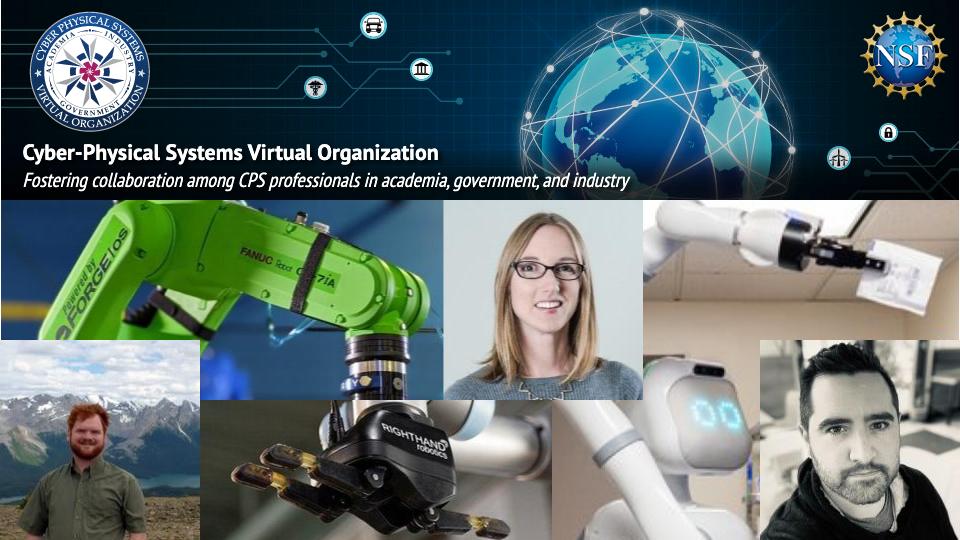
Robohub.org
Eight lessons for robotics startups from NRI PI workshop
 Research is all about being the first, but commercialization is all about repeatability, not just many times but every single time. This was one of the key takeaways from the Transitioning Research From Academia to Industry panel during the National Robotics Initiative Foundational Research in Robotics PI Meeting on March 10 2021. I had the pleasure of moderating a discussion between Lael Odhner, Co-Founder of RightHand Robotics, Andrea Thomaz, Co-Founder/CEO of Diligent Robotics and Assoc Prof at UTexas Austin, and Kel Guerin, Co-Founder/CIO of READY Robotics.
Research is all about being the first, but commercialization is all about repeatability, not just many times but every single time. This was one of the key takeaways from the Transitioning Research From Academia to Industry panel during the National Robotics Initiative Foundational Research in Robotics PI Meeting on March 10 2021. I had the pleasure of moderating a discussion between Lael Odhner, Co-Founder of RightHand Robotics, Andrea Thomaz, Co-Founder/CEO of Diligent Robotics and Assoc Prof at UTexas Austin, and Kel Guerin, Co-Founder/CIO of READY Robotics.
RightHand Robotics, Diligent Robotics and READY Robotics are young robotics startups that have all transitioned from the ICorps program and SBIR grant funding into becoming venture backed robotics startups. RightHand Robotics was founded in 2014 and is a Boston based company that specializes in robotics manipulation. It is spun out of work performed for the DARPA Autonomous Robotics Manipulation program and has since raised more than $34.3 million from investors that include Maniv Mobility, Playground and Menlo Ventures.
Diligent Robotics is based in Austin where they design and build robots like Moxi that assist clinical staff with routine activities so they can focus on caring for patients. Diligent Robotics is the youngest startup, founded in 2017 and having raised $15.8 million so far from investors that include True Ventures and Ubiquity Ventures. Andrea Thomaz maintains her position at UTexas Austin but has taken leave to focus on Diligent Robotics.
READY Robotics creates unique solutions that remove the barriers faced by small manufacturers when adopting robotic automation. Founded in 2016, and headquartered in Columbus, Ohio, the company has raised more than $41.8 million with investors that include Drive Capital and Canaan Capital. READY Robotics enables manufacturers to more easily deploy robots to the factory floor through a patented technology platform that combines a very easy to use programming interface and plug’n’play hardware. This enables small to medium sized manufacturers to be more competitive through the use of industrial robots.
To summarize the conversation into 8 key takeaways for startups.
- Research is primarily involved in developing a prototype (works once), whereas commercialization requires a product (works every time). Robustness and reliability are essential features of whatever you build.
- The customer development focus of the ICorps program speeds up the commercialization process, by forcing you into the field to talk face to face with potential customers and deeply explore their issues.
- Don’t lead with the robot! Get comfortable talking to people and learn to speak the language your customers use. Your job is to solve their problem, not persuade them to use your technology.
- The faster you can deeply embed yourself with your first customers, the faster you attain the critical knowledge that lets you define your product’s essential features, that the majority of your customers will need, from the merely ‘nice to have’ features or ‘one off’ ideas that can be misdirection.
- Team building is your biggest challenge, as many roles you will need to hire for are outside of your own experience. Conduct preparatory interviews with experts in an area that you don’t know, so that you learn what real expertize looks like, what questions to ask and what skillsets to look for.
- There is a lack of robotics skill sets in the marketplace so learn to look for transferable skills from other disciplines.
- It is actually easy to get to ‘yes’, but the real trick is knowing when to say ‘no’. In other words, don’t create or agree to bad contracts or term sheets, just for the sake of getting an agreement, considering it a ‘loss leader’. Focus on the agreements that make repeatable business sense for your company.
- Utilize the resources of your university, the accelerators, alumni funds, tech transfer departments, laboratories, experts and testing facilities.
And for robotics startups that don’t have immediate access to universities, then robotics clusters can provide similar assistance. From large clusters like RoboValley in Odense, MassRobotics in Boston and Silicon Valley Robotics which have startup programs, space and prototyping equipment, to smaller robotics clusters that can still provide a connection point to other resources.
tags: Andra Keay, Righthand Robotics, silicon valley robotics





